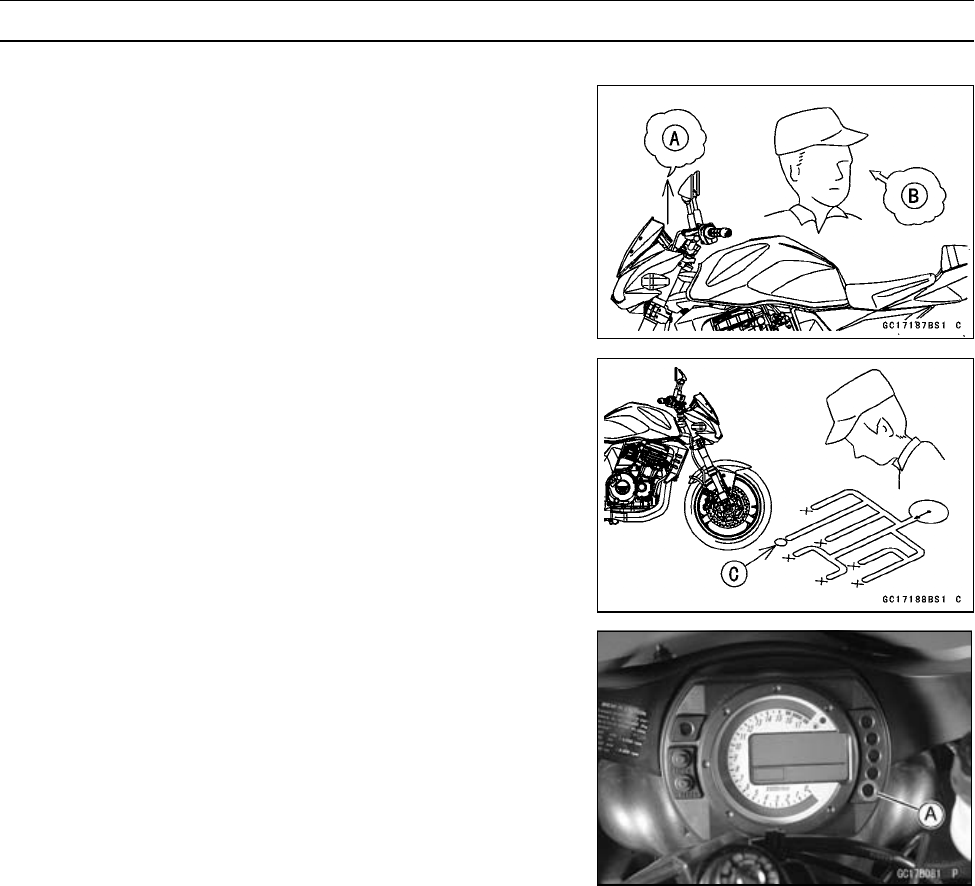
FUEL SYSTEM (DFI) 3-17
Troubleshooting the DFI System
Outline
When an abnormality in the system occurs, the FI indica-
tor
LED (Light Emitting Diode) light goes on to alert the rider
on the meter panel. In addition, the condition of the problem
is stored in the m emory of the ECU (electronic control unit).
Wit
h t he engine stopped and turned in the self-diagnosis
mode, the service code [A] is indicated by the number of
times the FI indicator LED light blinks.
Wh
en due to a malfunction, the FI indicator LED light re-
mains lit, ask the rider about the conditions [B] under which
the problem occurred and try to determine the cause [C].
•
Fi
rst, conduct a self-diagnosis inspection and then a non
-self-diagnosis inspection. The non–self–diagnosis items
are not indicated by the FI indicator LED light. Don’t rely
s
olely on the DFI self-diagnosis function, use common
sense.
Even when the DFI system is operating normally, the FI
indicator LED light [A] may light up under strong electrical
interference. No repair needed. Turn the ignition switch
OFF to stop the indicator light.
When the FI indicator LED light goes on and the motor-
cycle is brought in for repair, check the service codes.
When the repair has been done, the LED light doesn’t go
on. But the service codes stored in memory are not erased
to preserve the problem history, and the LED light can dis-
play the codes in the self-diagnosis mode. The problem
history is referred when solving unstable problems.
When the motorcycle is down, the vehicle-down sensor
is turned OFF and the ECU shuts off the fuel injectors and
ignition system. The FI indicator LED light blinks but the
fault code cannot be displayed. The ignition switch is left
ON. If the starter button is pushed, the electric starter turns
but the engine doesn’t start. To start the engine again, raise
the motorcycle, turn the ignition switch OFF, and then ON.
The vehicle-down sensor is turned ON and the LED light
goes OFF.


















